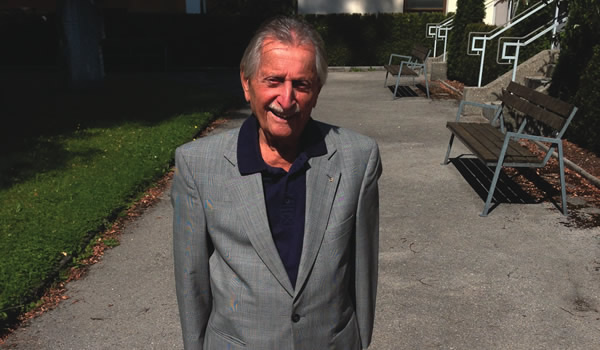
I offer an Impromptus column today, which, as usual, has a parade of personalities and an array of points — something to please and annoy everyone. I have a memory of Chris Matthews (who’s not dead, just off television, which, for some, is a kind of death). I have some memories of Joe Biden (who has been in the news lately).
Further, I discuss Mitt Romney at CPAC. No, he wasn’t there, in body. But he was certainly there in spirit: as the villain of the piece, the Emmanuel Goldstein.
The remarks of Alex Jones, the InfoWars guy, were relatively gentle. “He’s a Republican in name only, a RINO,” Jones said of Romney. “And I’m proud of CPAC telling him not to come here.”
In my column, I also write about Hong Kong, Venezuela, Navy SEALs, Rory McIlroy (the golfer), and more.
I begin, actually, with a memory of Joe Coulombe, the founder of Trader Joe’s (the grocery-store chain). I encountered him in Austria once, along with his wife. This was a “brush with greatness,” as David Letterman would say.
Eulogizing Joe — and his breed — I write the following:
We need our entrepreneurs. Our country can’t be all politicians, pundits, and central planners. We need people who have new ideas, take risks, and light a spark. Who provide goods and services, and employ people, and make our economy hum.
These days, it seems to me, not many people are defending the entrepreneur. We would miss them if they were gone, or stifled. Three cheers for Trader Joe Coulombe.
A reader of ours writes in,
I am an attorney in Dayton, Ohio.
Your riff on Trader Joe and the need for entrepreneurship prompts me to share with you an observation I’ve been sharing with many people lately. That observation is that a disproportionate share of entrepreneurship and risk-taking today is coming from immigrants and their children. I know this because I see it all the time in my law practice.
The native-born and their children, especially children from air-conditioned suburbs, increasingly want only to become someone else’s employee. The immigrants and their children, by contrast, are working 18 hours a day and scrimping and saving every last penny so that they can finally buy an old strip-shopping center, a dilapidated motel, or whatever. If the newest immigrants have kids, they make those kids work even if the kids are pre-teens, the same way that I’ll bet your grandparents worked when they were pre-teens.
The immigrants who are the most prolific entrepreneurs? Indians, with Arabs, Nigerians, and Orientals not far behind. The Hindu school in suburban Dayton — literally a Sunday school for children of recent immigrants from India — teaches project management and finance to fourth-graders. And I have a Nigerian client who drove a taxicab for many years before he finally bought a drive-thru convenience store, a type of store endemic to Ohio. He now owns several such stores, and hangers-on like me now laugh at all his jokes.
On the right these days, I don’t often hear a kind word about immigrants or immigration. I think that many of us are so eager to clamp down on illegal immigration, we are loath to say anything good about immigration at all, lest we give aid and comfort to the enemy. But immigrants are a key part of the American story — which is a very good story. Without them, we would be less than America.
You don’t have to go full Reagan to recognize the importance and value — even the glory — of immigration. (How did your forebears get here, by the way? Mayflower?) But a glimmer of recognition — a nod, if you will — wouldn’t kill us.
By the way, did you notice our reader’s use of the word “Orientals”? “Oriental” is verboten now, except in reference to rugs. I never thought this verbotenization made sense. Someday, “East Asians” may be verbotenized too. And then some other moniker will be cool, for a while.
(Several years ago, I wrote an essay on this: “Adventures in Lexical Fashion.”)
At the end of today’s Impromptus, I have a word about Marko Feingold, a Salzburger, originally from Vienna, who has now died at 106. I interviewed him in 2013, when he was 100. On NRO, I wrote him up in two parts: here and here. Marko Feingold was one of the most extraordinary people I have ever met.
He had vivid — vivid — memories of World War I. About 20 years after, of course, came the second war. Feingold survived four concentration camps, including Auschwitz and Buchenwald. “I could write a Michelin guide to the camps,” he was known to quip.
He did a lot of living thereafter, and not just in terms of years. He risked his neck to get Jews to the Holy Land. He prospered in business. And he spent decade after decade — right up to the end — trying to ensure that people knew about the Holocaust. Especially people who didn’t want to know.
An amazing man, Marko Feingold.



